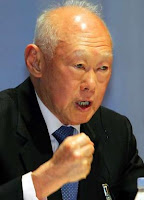 |
| Location: Kundasang. Photo: The Chukai Insider |
Malaysia Day has passed us. I do not know how your version
of celebrating Merdeka and Malaysia Day but surely is something that we have
always taken for granted.
I leave the space to tell about our histories to the
newspapers, documentaries and to some both clever and stupid politicians.
Besides, there are lots of versions of the history of Malaysia than any other
time in the media today. Go to The Star, you will have the snippets of its own
version of history and The Malaysian Insider features many articles with many
different opinions. Watch a politician’s Youtube video, you will totally get
another different version. Aren’t they enough for you to get interactive
learning of your nation’s history? Duhh.
However, we must take stand to so that we know we are
heading in our process of understanding. It does not mean we are closed for
discussion and further corrections when we take our stand. For me, the notion
that our nation had never been colonised before is just playing with semantics.
Why not? (You can read all the legal stuffs portrayed by the historians at
other websites). Colonisation was not just about playing with legal words,
agreements and paper works. It is beyond that. So, when some quarter of people
saying that we were not colonised before made me think of how we view our dijajah era. Was it just about the
technical details that marked the colonisation period? Was there no penjajahan (colonisation) to the minds
of the people? Or as in Malay ‘penjajahan minda’?
But it is good that we have this kind of thing in Malaysia.
Our society has begun to mature and able to accept people’s views and
synthesise from it. From there, we would be able to judge which are the best
opinions and the most perfect version. Mind you that we live in a democratic
society and open discussion and projection of ideas are things that make us a
blooming democracy. In my Trengganu words- gining
baru kelas, nampok pandai-pandai orang Malaysia. Dok la ikut belake cakap
orang! Hok mane betul tu betul gok! Nampok
macang negare maju skit! Dok ke kelas gitu?
How can it be more interesting than to live in today’s
political landscape? Many things are happening in our political world which we
cannot run away from since it shapes our society and consequently shaping us.
Don’t you think we would have been a different person if we were born in a
communist country? Yes, Mat Sabu. Anything to add? Or the pain on your
right/left leg come again and you are not able to answer that? I thought the
expensive medicine made the pain gone? No?
Enough of that.
Or would it be different if we were born in a nation where
there was only one religion, one race or even one party? That would be worse
for Muslims in Malaysia. Where would there be space for you to get to know each
of different people when our religion says that we must get to know each other?
Overall, Alhamdulillah that I was born in Malaysia.
Alhamdulillah too that I was born in 1990 when after 21 years after that was
the most interesting period of the political landscape of my beloved nation. Let's do something good for Malaysia!-The Chukai Insider











